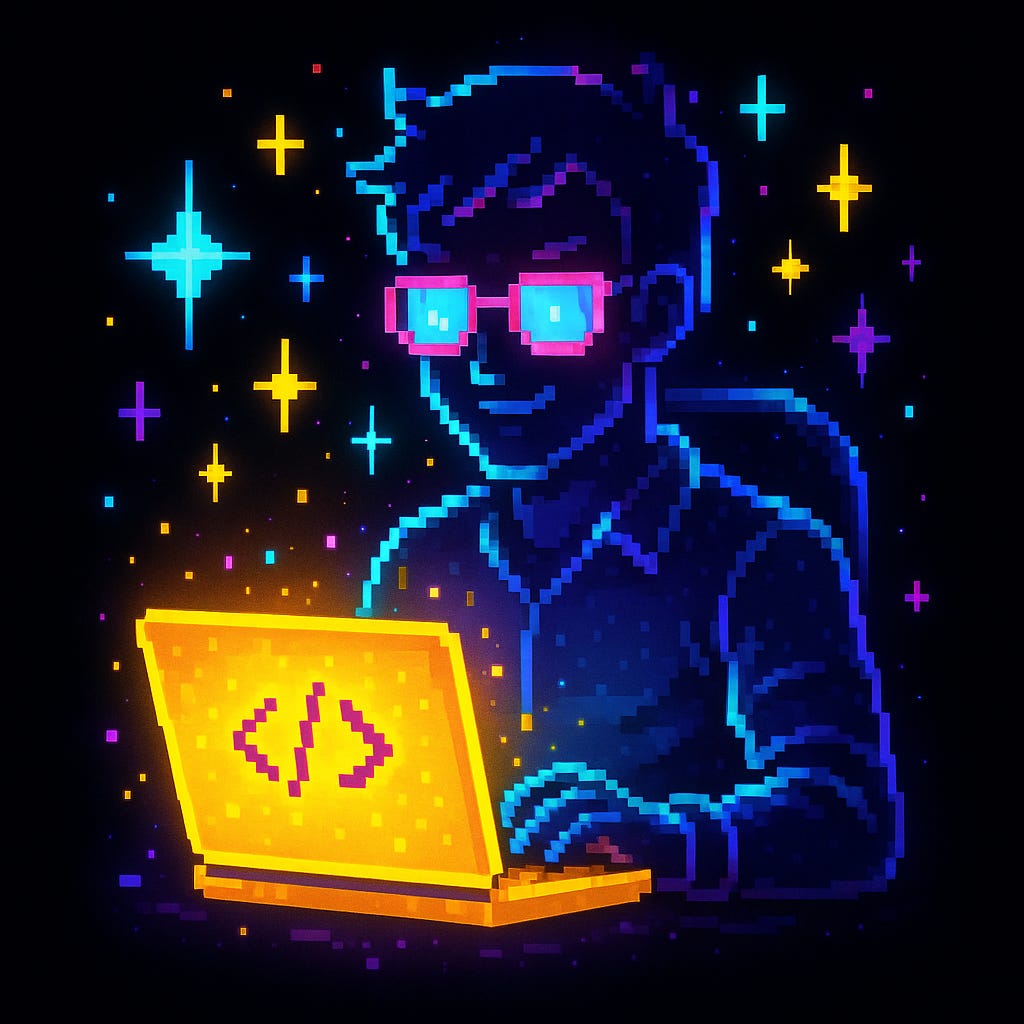Every tech forum is flooded with “Will AI eliminate software developers?” posts (example).
Developers spiral-tweet about AI replacing them.
Bootcamp grads switch majors mid-stream.
The narrative dominates every conversation: AI agents are here to steal your livelihood.
But there’s a problem with this hysteria. It’s built on a fundamental misunderstanding of what’s actually happening in our industry.
While everyone panics, the data tells a different story:
96% of developers are excited about using AI agents (Salesforce)
AI-augmented developers ship code 55% faster (GitHub)
Demand for AI-savvy engineers has tripled since 2023 (LinkedIn)
That’s not the behavior of people watching their industry die.
It’s enthusiasm from professionals who spot a massive opportunity.
Imagine how much opportunity this brings to solopreneurs, content creators and indie hackers.
Lesson 1: The Real Transformation is Already Here
I’ve spent two years helping solopreneurs automate their workflows using tools like n8n and Make.
What I’ve witnessed isn’t job destruction.
It’s job evolution.
Let’s create a hypothetical.
Meet Sarah, a solo marketing consultant drowning in:
✔️ Lead qualification
✔️ Data entry
✔️ Follow-up sequences
She decides to automate some of these tasks.
She builds an agentic workflow that:
✅ Automatically qualifies inbound leads using AI analysis
✅ Triggers personalized email sequences
✅ Updates her CRM with conversation summaries
✅ Schedules follow-up tasks
The AI didn’t replace Sarah. It made her better at what she already did best.
This exact transformation is happening in software development—but at scale.
“Tasks that once took a team of developers are now being done by two developers and an LLM. In an era where small teams can ship big products, developers need to think more like product people.”
— Maham Hassan, Cloud-1 CTO
Notice the language. Two developers and an LLM. Not zero developers replaced by an LLM.
Lesson 2: Welcome to the Age of the AI Orchestrator
The developers who thrive in the next decade won’t be the ones who write the most code.
They’ll be the ones who design the most intelligent systems.
Old World (Code Monkey Era)
▸ Writing functions line by line
▸ Debugging syntax errors
▸ Manually handling edge cases
▸ Context-switching between tools
New World (AI Orchestrator Era)
▸ Designing agent workflows
▸ Creating autonomous decision systems
▸ Building pattern-learning automation
▸ Focusing on strategy & creativity
This isn’t about knowing fewer technical skills.
It’s applying those skills at a higher level of abstraction.
Lesson 3: The Competitive Moat You’re Missing
Here’s what keeps me up at night: Developers who understand agentic workflows are building moats that will be impossible to replicate.
While everyone argues about job replacement, forward-thinking developers are:
Designing agent ecosystems that coordinate multiple AI tools
Building context-aware workflows that understand business logic
Creating orchestration systems that adapt to change
Developing AI partnerships where human creativity guides execution
I’ve seen solo developers deliver enterprise-level solutions that used to require entire teams.
They’re not coding faster.
They’re thinking differently.
“That’s like asking if power tools make carpenters lazy. The best carpenters use the most effective tools—then focus on design and craftsmanship.”
The Path Forward: Your Evolution Playbook
Step 1: Stop Fighting the Current
Agentic workflows aren’t a threat—they’re the next evolution of development tools.
Step 2: Think Like an Orchestrator
Focus on:
System architecture
Business logic
Creative problem-solving
Step 3: Learn the New Stack
Start small: Automate one recurring task. Scale up.
Step 4: Master AI Collaboration
Understand AI strengths/limitations to provide optimal context.
The Takeaway
We’re not witnessing the end of software development. We’re witnessing its evolution from manual craft to intelligent orchestration.
The only real risk? Being left behind while your peers become superhuman.
What’s your plan to turn fear into your competitive edge?





